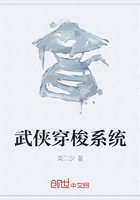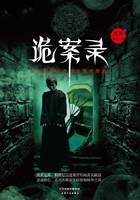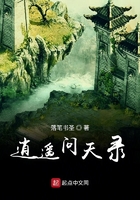He takes his bride into a finer mansion, it may be, but he is obliged to go all the way through it and say to his wife, ``My mother gave me that, my mother gave me that, and my mother gave me this,'' until his wife wishes she had married his mother. I pity the rich man's son.
The statistics of Massachusetts showed that not one rich man's son out of seventeen ever dies rich. I pity the rich man's sons unless they have the good sense of the elder Vanderbilt, which sometimes happens. He went to his father and said, ``Did you earn all your money?'' ``I did, my son.
I began to work on a ferry-boat for twenty-five cents a day.'' ``Then,'' said his son, ``I will have none of your money,'' and he, too, tried to get employment on a ferry-boat that Saturday night.
He could not get one there, but he did get a place for three dollars a week. Of course, if a rich man's son will do that, he will get the discipline of a poor boy that is worth more than a university education to any man. He would then be able to take care of the millions of his father. But as a rule the rich men will not let their sons do the very thing that made them great. As a rule, the rich man will not allow his son to work--and his mother!
Why, she would think it was a social disgrace if her poor, weak, little lily-fingered, sissy sort of a boy had to earn his living with honest toil. Ihave no pity for such rich men's sons.
I remember one at Niagara Falls. I think I remember one a great deal nearer. I think there are gentlemen present who were at a great banquet, and I beg pardon of his friends. At a banquet here in Philadelphia there sat beside me a kind-hearted young man, and he said, ``Mr.
Conwell, you have been sick for two or three years.
When you go out, take my limousine, and it will take you up to your house on Broad Street.''
I thanked him very much, and perhaps I ought not to mention the incident in this way, but Ifollow the facts. I got on to the seat with the driver of that limousine, outside, and when we were going up I asked the driver, ``How much did this limousine cost?'' ``Six thousand eight hundred, and he had to pay the duty on it.''
``Well,'' I said, ``does the owner of this machine ever drive it himself?'' At that the chauffeur laughed so heartily that he lost control of his machine. He was so surprised at the question that he ran up on the sidewalk, and around a corner lamp-post out into the street again. And when he got out into the street he laughed till the whole machine trembled. He said: ``He drive this machine!
Oh, he would be lucky if he knew enough to get out when we get there.''
I must tell you about a rich man's son at Niagara Falls. I came in from the lecture to the hotel, and as I approached the desk of the clerk there stood a millionaire's son from New York.
He was an indescribable specimen of anthropologic potency. He had a skull-cap on one side of his head, with a gold tassel in the top of it, and a gold-headed cane under his arm with more in it than in his head. It is a very difficult thing to describe that young man. He wore an eye-glass that he could not see through, patent-leather boots that he could not walk in, and pants that he could not sit down in--dressed like a grasshopper. This human cricket came up to the clerk's desk just as I entered, adjusted his unseeing eye-glass, and spake in this wise to the clerk.
You see, he thought it was ``Hinglish, you know,''
to lisp. ``Thir, will you have the kindness to supply me with thome papah and enwelophs!''
The hotel clerk measured that man quick, and he pulled the envelopes and paper out of a drawer, threw them across the counter toward the young man, and then turned away to his books. You should have seen that young man when those envelopes came across that counter. He swelled up like a gobbler turkey, adjusted his unseeing eye-glass, and yelled: ``Come right back here. Now thir, will you order a thervant to take that papah and enwelophs to yondah dethk.'' Oh, the poor, miserable, contemptible American monkey! He could not carry paper and envelopes twenty feet.
I suppose he could not get his arms down to do it. I have no pity for such travesties upon human nature. If you have not capital, young man, Iam glad of it. What you need is common sense, not copper cents.
The best thing I can do is to illustrate by actual facts well-known to you all. A. T. Stewart, a poor boy in New York, had $1.50 to begin life on.
He lost 87 cents of that on the very first venture.
How fortunate that young man who loses the first time he gambles. That boy said, ``I will never gamble again in business,'' and he never did. How came he to lose 87 cents? You probably all know the story how he lost it--because he bought some needles, threads, and buttons to sell which people did not want, and had them left on his hands, a dead loss. Said the boy, ``I will not lose any more money in that way.'' Then he went around first to the doors and asked the people what they did want. Then when he had found out what they wanted he invested his 62
cents to supply a known demand. Study it wherever you choose--in business, in your profession, in your housekeeping, whatever your life, that one thing is the secret of success. You must first know the demand. You must first know what people need, and then invest yourself where you are most needed. A. T. Stewart went on that principle until he was worth what amounted afterward to forty millions of dollars, owning the very store in which Mr. Wanamaker carries on his great work in New York. His fortune was made by his losing something, which taught him the great lesson that he must only invest himself or his money in something that people need.
When will you salesmen learn it? When will you manufacturers learn that you must know the changing needs of humanity if you would succeed in life? Apply yourselves, all you Christian people, as manufacturers or merchants or workmen to supply that human need. It is a great principle as broad as humanity and as deep as the Scripture itself.















